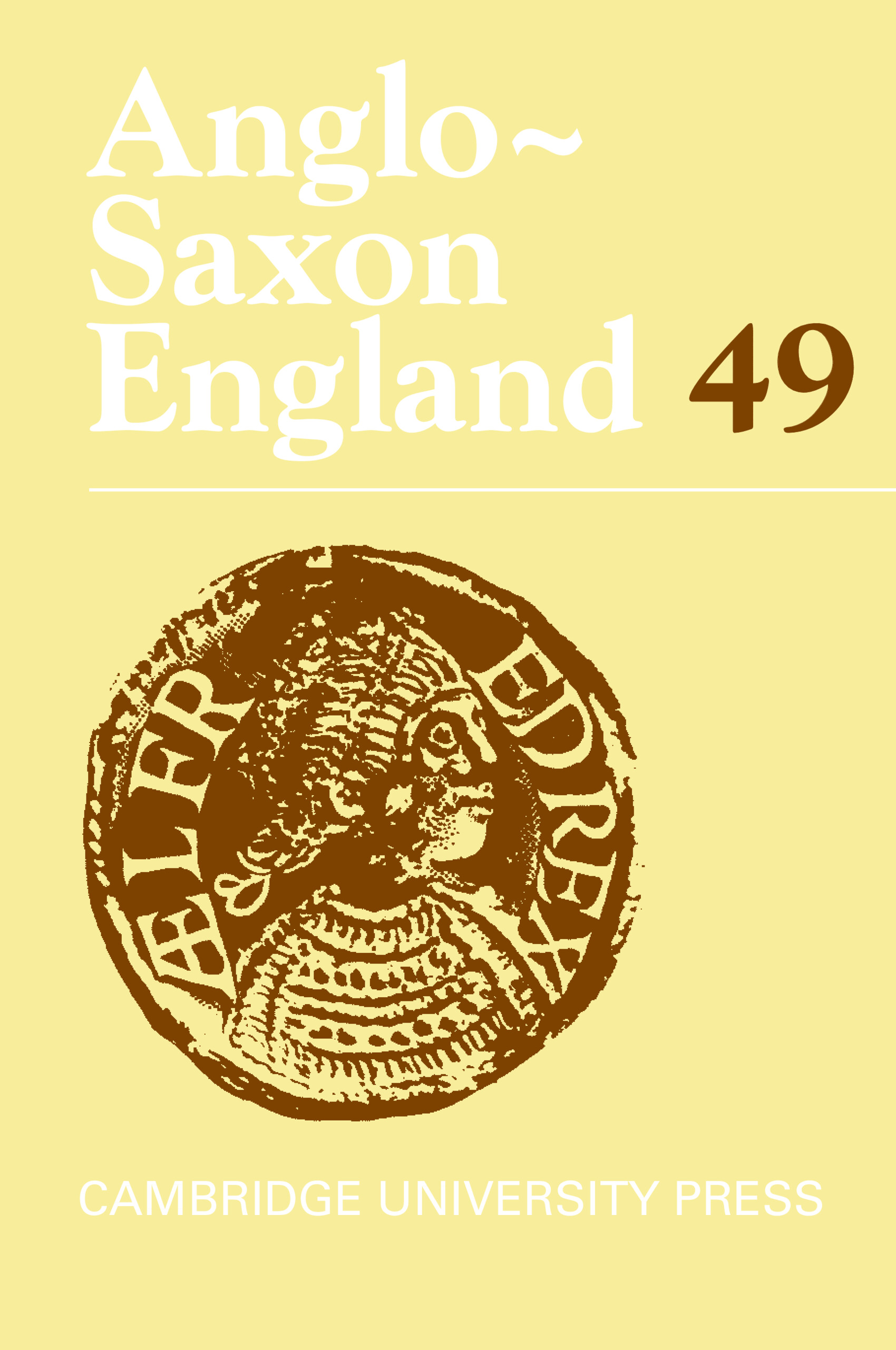Article contents
Beowulf the headstrong
Published online by Cambridge University Press: 26 September 2008
Extract
The Beowulf poet tells us (194–201) that when his hero heard about Grendel's doings he had a good ship made ready for himself, saying he was minded to seek overseas the war-king (i.e. join Hrothgar), who stood in need of men. We learn further (202–4) that the wise men made no objection, though he was dear to them; they urged him on, saw (good) omens. These compatriots, presumably elders or councillors, come up again a little later, when the hero tells the Danish king:
Þa me þæ gelærdon leode mine,
þa selestan, snotere ceorlas,
þeoden Hroðgar, þæt ic þe sohte,
forþan hie mægenes cræft mine cuþon.
King Hygelac himself was of another mind if we go by his words of welcome when Beowulf came home from Denmark:
Hu lomp eow on lade, leofa Biowulf,
þa ðu færinga feorr gehogodest
sæcce secean ofer sealt wæter,
hilde, to Hiorote? Ac ðu Hroðgare
widcuðne wean wihte gebettest,
mærum ðeodne? Ic ðæs modceare
sorhwylmum seað, siðe ne truwode
leofes mannes. Ic ðe lange bæd
þæt ðu þone wælgæst wihte ne grette,
lete Suðdene sylfe geweorðan
guðe wið Grendel. Gode ic þanc secge
þæsðe ic ðe gesundne geseon moste.
On the face of it, then, king and council were at odds in the counsel they gave Beowulf, who chose to follow the bold rather than the safe course, despite his lord's pleas. A headstrong hero he.
- Type
- Research Article
- Information
- Copyright
- Copyright © Cambridge University Press 1972
References
Page 139 note 1 ‘Then my people, the best ones, the wise men, advised me to seek you, lord Hrothgar, because they knew my endowment of strength’ (415–18).
Page 139 note 2 ‘How went it with you men abroad, dear Beowulf, when you suddenly made up your mind to seek fighting, battle, far away, over salt water, at Heorot? Did you give Hrothgar, the illustrious lord, any relief at all from his widely known woe? Because of that [i.e. on your account] I heated myself into a distressful state of mind [lit. I made mood-care boiling hot with sorrow-surges]; I lacked faith in the dear man's course. I long urged you to have nothing to do with that deadly demon, to let the South Danes themselves settle the feud with Grendel. I say thanks to God for seeing you safe’ (1987–98).
Page 140 note 1 ‘None of them thought that he was destined ever to go thence, seek again the dear home, people or court where he was reared; but they had learned that slaughter-death had taken men of the Danes, too many of them by far, in that wine-hall’ (691–6a).
Page 141 note 1 Beowulf, ed. F. Klaeber, 3rd ed. (Boston, 1950), p. 201.
Page 141 note 2 ‘Often many a man by the will [i.e. wilfulness] of one must suffer distress, as has happened to us. We could not make the dear lord, the kingdom's keeper, listen to reason, see that he had better leave that gold-holder alone, let him lie where he long was, dwelling in his abode to the end of the world’ (3077–83).
Page 142 note 1 ‘Then that guest began to spew flames, burn handsome houses. The blazing fires stood out, to the fright of men; the hateful sky-flier was not at all willing to leave anything alive there. The reptile's war-waging, the battling of the bitter foe, how that doer of harm in fight hated and brought low the men of the Geats, was widely seen, from near and far. [But] he shot back to hoard, hidden hall, before daybreak’ (2312–20).
Page 143 note 1 ‘I dared many fights in youth; I am minded still, aged keeper of the nation, to seek battle, do a famous deed, if the evil-doer seeks me out from [his] cave’ (2511b–15).
Page 143 note 2 Beoawlf, p. xxii.
Page 144 note 1 ‘To the lord of all, king of glory, everlasting God I say thanks for those treasures that I am looking at here; [I say thanks] because I was allowed to gain such for my people before I died’ (2794–8).
Page 144 note 2 ‘I have kept this nation for fifty years; that folk-king of dwellers round about did not exist, [not] any of those [folk-kings existed], who dared come near me with weapons, press me hard’ (2732b–6a).
- 1
- Cited by


